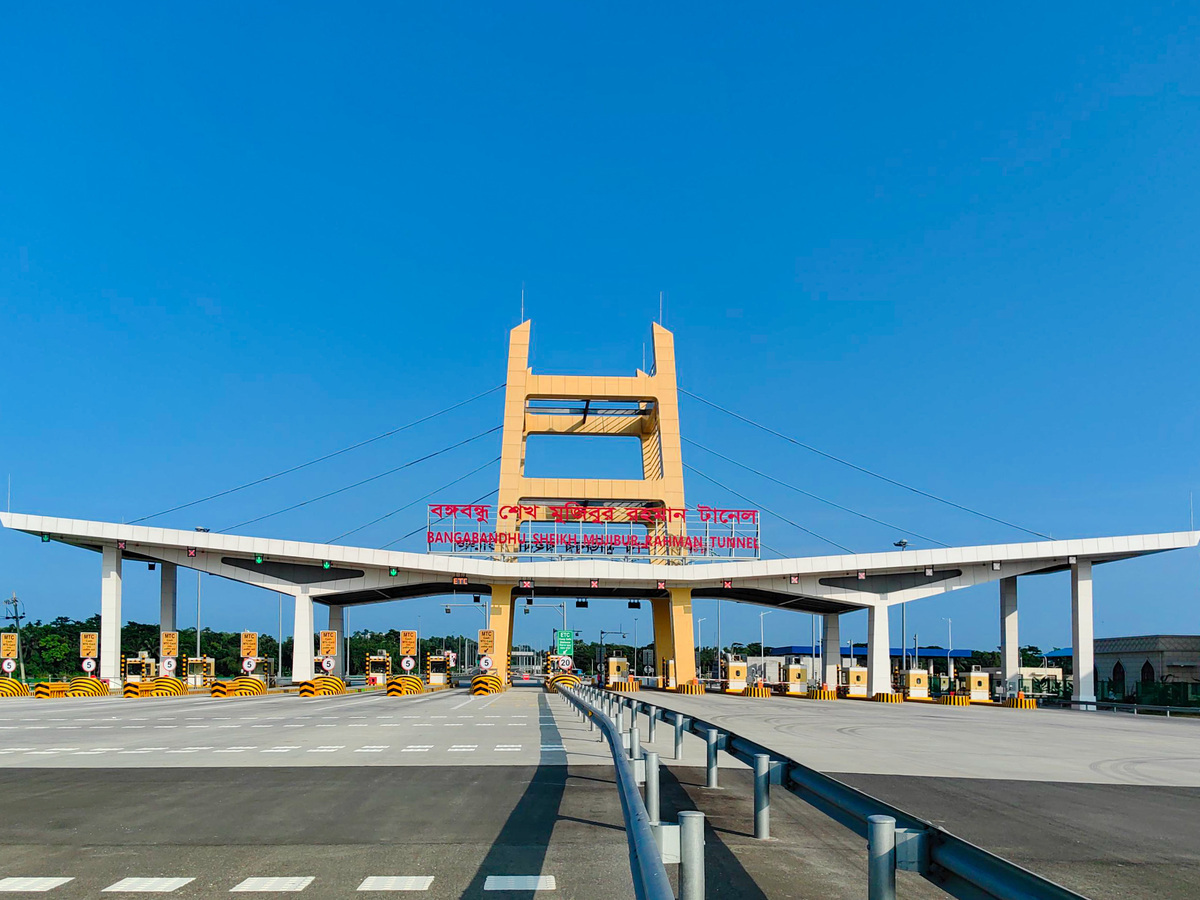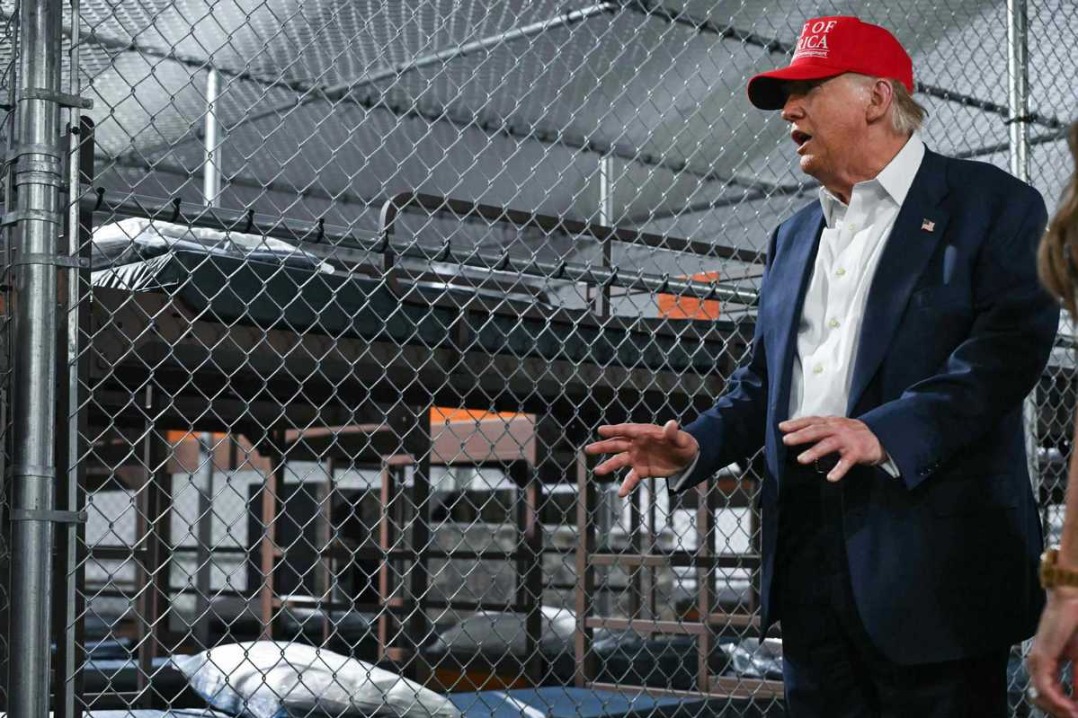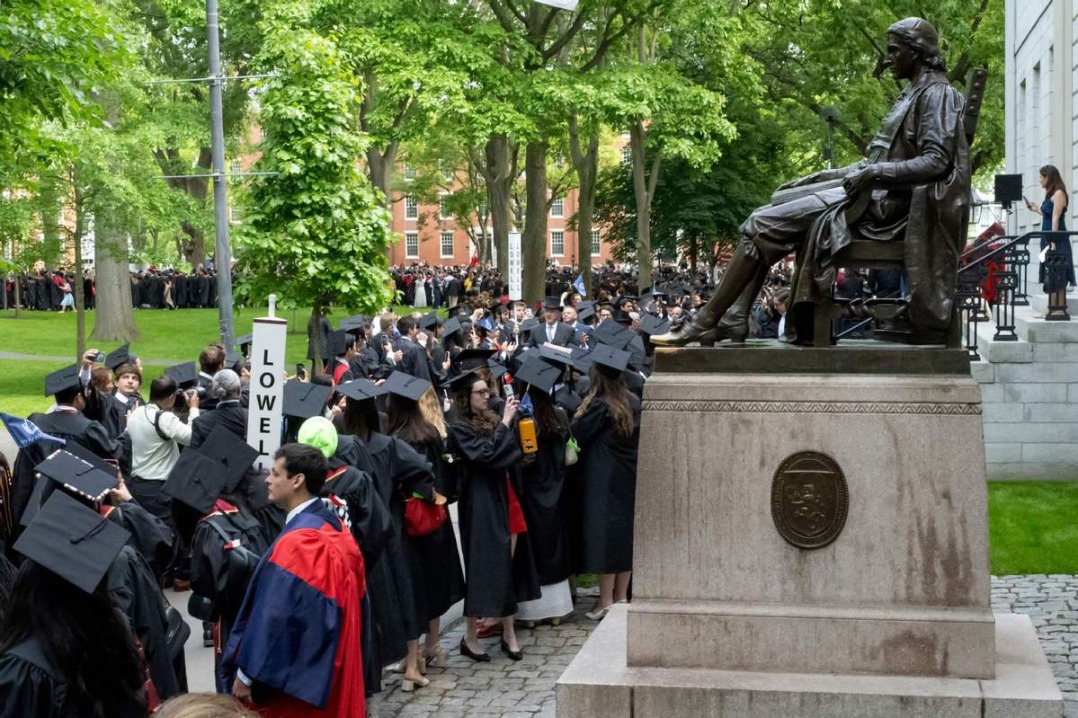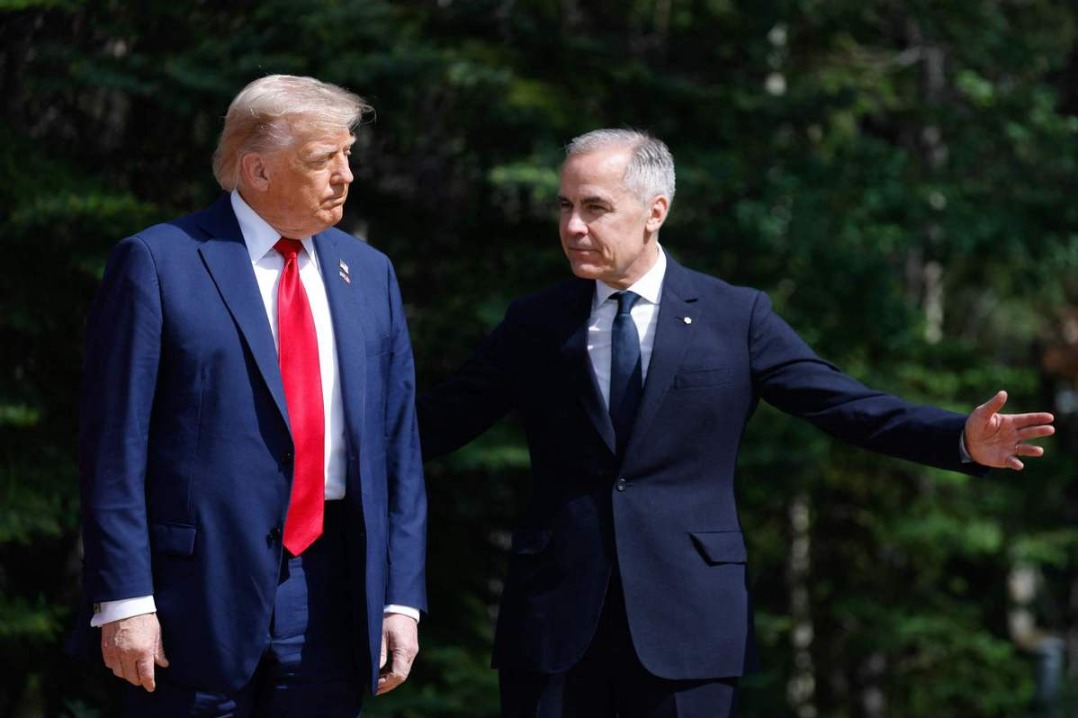Underwater link set to spur growth






The first underwater tunnel in South Asia, built by a Chinese company, is expected to usher in a new era of transport and economic growth for Bangladesh and enhance connectivity with its neighbors.
Built by China Communication Construction, the Bangabandhu Sheikh Mujibur Rahman Tunnel runs for 9.3 kilometers with a speed limit of 80 km per hour.
Located at the estuary of the Kanaphuri River in Chittagong City, the tunnel has an approach road of 5.35 km, alongside a 727-meter bridge linking the main city, port and the eastern and western sides of the river. The tunnel opened to traffic late last month.
Bangladesh's Prime Minister Sheikh Hasina inaugurated the tunnel on Oct 28, when she paid the first toll and went through the link. China's Ambassador to Bangladesh Yao Wen also attended the inauguration ceremony.
The long-awaited tunnel, which is located 242 km southeast of the capital Dhaka, was built with joint funding from the governments of Bangladesh and China. The project was supported by preferential credit from the Export-Import Bank of China.
Also known as the Karnaphuli Tunnel, it will link the proposed Asian Highway to the Dhaka-Chattogram-Cox's Bazar highway network and is set to reduce travel distance from Chattogram to the southeastern beachside town of Cox's Bazar by 40 km.
Bangladesh's New Age, a local English-language newspaper, said that it would "improve the communications system in the southeastern region of the country".
Bangladeshi Road Transport and Bridges Minister Obaidul Quader earlier said the inauguration of the project heralds Bangladesh's entry into the era of underwater tunnels.
It is also the first large-diameter underwater shield tunnel undertaken by a Chinese company overseas, involving the design and manufacture of a tunnel boring machine with a diameter of 12 meters.
Long-term cooperation
Yu Jingtao, the project manager, told Xinhua News Agency that the tunnel was constructed using Chinese design, technology and standards.
Marco Foerster, the FDI adviser at Dezan Shira & Associates, said Bangladesh has a long history of working with foreign firms such as Chinese, Japanese and Indian companies on large infrastructure projects.
"These collaborations have been generally successful, and Bangladesh has benefited a lot from its partners," said Foerster, who is based in Ho Chi Minh City.
"Chinese companies have played a particularly important role in Bangladesh's infrastructure development in recent years. They have been involved in the construction of major roads, bridges, and power plants," Foerster said, citing other Chinese projects including the Padma Bridge Rail Link and Dhaka Metro.
They will deliver transformative economic benefits, Foerster said, adding that the Karnaphuli underwater tunnel is likely to cut travel time across the Karnaphuli River by 90 percent, enhancing trade and tourism prospects in the area.
Official figures show that the tunnel project has created more than 5,000 jobs so far, trained local people in infrastructure construction skills, and promoted local economic development.
"It is a construction marvel, and we are so proud of it," said Abdur Rahim, a Dhaka-based Chinese language teacher.
Arunava Das is a freelance journalist for China Daily.




























